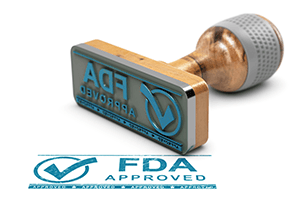A Snapshot of FDA Regulatory and Compliance Updates in October 2019
The Food and Drug Administration (FDA) is constantly making changes to the regulations they use to oversee pharmaceutical, biotech, medical device, and skin and cosmetic companies. These changes can have adverse effects on how your company operates, the products you make, and each of the internal processes that keep your company compliant.
Here’s a brief snapshot of what happened at the FDA in October 2019.
1. The FDA encourages patient engagement in medical device trial design through draft guidance
The FDA released a draft guidance in late September that encourages medical device makers to engage their patients throughout the clinical investigation design process. The guidance was released in order to solidify the FDA’s push to engage patients in the overall regulatory processes that govern the ideation, design, and manufacturing of the medical devices they rely on.
It also encourages the Patient Engagement Advisory Committee (PEAC) to create new ways for companies to collect patient input throughout a product’s life cycle.
According to the FDA, patient engagement includes “intentional, meaningful interactions with patients that provide opportunities for mutual learning, and effective collaborations.”
The FDA recommends assigning patients two distinct roles:
- Study or research participants who serve as a control or who have the opportunity to test a device
- Consultants with a specific condition that are not involved in the research, but can serve in an advisory role.
2. The FDA issues additional guidance documents calling for patient-focused drug development
The FDA is looking to modernize the way drugs are researched, developed, and marketed to end-users. The agency issued a second draft guidance in October that encouraged companies to base their drug development on what matters most to patients.
The guidance discussed methods for collecting information about patient experiences, how to determine what is important to patients, and how this data can be used to improve COAs.
The agency suggested that stakeholders perform background research, literature reviews, engage with subject matter experts, and develop comprehensive research questions that focus on the patient’s desired outcome.
3. The FDA issues guidance on how companies can interact with the FDA for complex trial designs for biologics and drugs
The FDA issued a detailed draft guidance at the end of September that described how applicants and sponsors can interact with the agency for complex innovation clinical trial design proposals. The focus of this guidance was on improving sponsor interactions for CID proposals, where trials must submit substantial evidence of effectiveness.
This guidance reaffirmed that there is no fixed definition of CID because innovative concepts evolve over time.
According to the FDA, CID includes “trial designs that have rarely or never been used to date to provide substantial evidence of effectiveness in new drug applications or biologics license applications.”
The FDA encourages companies to engage with the FDA to communicate their CID plans.
Stay up to Date With Pharmaceutical and Medical Device Training
The Center for Professional Innovation and Education (CfPIE) provides comprehensive training to pharmaceutical, biotech, medical device, and skincare and cosmetic companies.
Your employees may require additional pharmaceutical training and medical device training courses to stay compliant with the latest FDA regulations and recommendations.
Please contact CfPIE at 1-610-648-7550 to learn more about our training courses and how they can help you cater to these recent changes.
Blog Categories
Stay Informed



